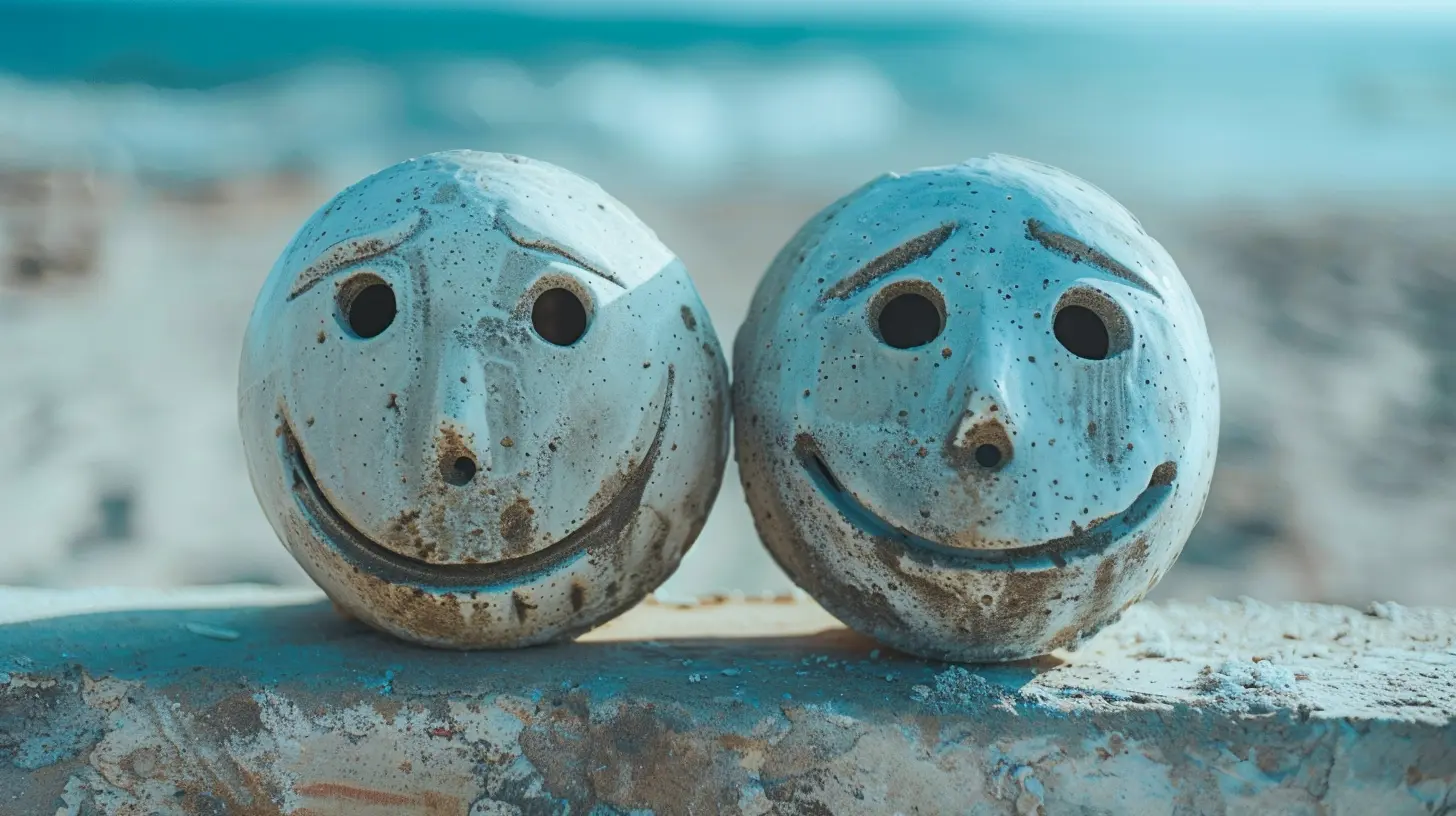The Importance of Self-Care for Emotional Regulation
8 October 2025
Let’s face it—life can get messy. Between the deadlines, the responsibilities, and the endless stream of notifications, it’s no wonder so many of us feel emotionally drained. But here’s the kicker: if you’re not taking care of yourself, your emotions are going to spiral faster than a fidget spinner in a wind tunnel.
That’s where self-care steps in like a superhero in yoga pants.
Self-care isn’t just about spa days and green juice. It’s about setting boundaries, tuning into your emotions, and creating space for your mental well-being to flourish. More importantly, it's one of the most powerful tools we can use for emotional regulation.
In this post, we’re diving deep into why self-care isn’t just a luxury—it’s straight-up emotional medicine.

What Is Emotional Regulation, Anyway?
Before we jump into bubble baths and journaling prompts, let’s get a handle on what emotional regulation actually means.In simplest terms, emotional regulation is your ability to manage and respond to your emotions in a healthy and constructive way. It’s not about suppressing your feelings or pretending you're fine when you're not. Instead, it’s learning how to recognize, understand, and respond to your emotions without letting them take the wheel.
Ever snapped at someone because you were hangry? Yep, that’s emotional dysregulation in action. The goal of emotional regulation is to stop those kinds of outbursts before they happen—or at least understand them when they do.

Why Emotional Regulation Matters
Let’s not sugarcoat things: unchecked emotions can wreak havoc on your relationships, work life, and even your physical health. Chronic stress and emotional turbulence can lead to anxiety, depression, substance abuse, and even heart disease.On the flip side, when you get good at managing your emotions, everything starts to feel just a little more manageable. You become more patient with people. You learn to pause before reacting. You make better decisions, communicate more clearly, and feel more in control of your life.
Basically, emotional regulation helps you show up as your best self—even when life throws tantrums.

Self-Care: The Unsung Hero of Emotional Regulation
Self-care isn’t selfish. Let’s repeat that one more time for the people in the back: Self-care is not selfish.It’s one of the most effective ways to stay emotionally balanced. Think of self-care as emotional first-aid. When your emotional energy is drained, self-care fills your cup back up.
Here’s how self-care connects directly to emotional regulation:
1. Self-Awareness Starts with Self-Care
You can’t manage what you’re not aware of. Self-care practices like journaling, mindfulness, and quiet reflection help you tune in to what’s really going on inside. They give you the space to ask, “Why am I feeling this way?” instead of reacting on autopilot.Need an analogy? Think of your mind like a snow globe. When it’s shaken (a.k.a. stress), everything’s cloudy. But with stillness (courtesy of self-care), the snow settles and clarity kicks in.
2. Reducing Stress = Better Emotional Control
When you’re constantly running on empty, your ability to handle stress goes out the window. That’s when emotions like frustration, anger, or sadness take over. But regular self-care practices—like exercise, nature walks, or just breathing deeply—help reduce stress hormones like cortisol in your body.Less stress = more calm. And more calm means you can regulate your emotions instead of being ruled by them.
3. Self-Care Builds Resilience
Think of resilience as your emotional muscle. The more you practice self-care, the stronger that muscle gets. So when life throws curveballs (because it always does), you’re better equipped to catch them with grace instead of panic.Whether it’s getting enough sleep, setting boundaries with toxic people, or saying no without guilt, self-care provides the foundation for resilience.
4. It Encourages Emotional Expression
Bottling up emotions is like shaking a soda can—sooner or later, it’s gonna explode. Self-care creates a safe outlet for emotions. Maybe it’s through painting, writing, dancing in your living room, or crying into a pint of ice cream (we’ve all been there).Point is, expressing emotions in healthy ways helps you process them. And processing leads to regulation.
5. Better Habits Make for a Balanced Mind
Let’s talk basics: Are you sleeping well? Eating properly? Moving your body? Drinking water that isn’t coffee?These might seem like small things, but they’re actually huge. Physical self-care directly impacts your brain chemistry. And when your brain is balanced, so are your emotions.

Real-Life Self-Care for Real People
Okay, enough theory. Let’s get to the good stuff—practical, doable self-care tips that actually help regulate your emotions. And no, you don’t need a Pinterest-worthy morning routine to make it work.1. Morning Check-Ins
Take five minutes in the morning to check in with yourself. Ask:- How am I feeling today?
- What do I need emotionally?
- What’s one kind thing I can do for myself today?
You’d be surprised how powerful this tiny pause can be.
2. Move Your Body (Even a Little)
You don’t have to run marathons. Just go for a walk, stretch, or dance to your favorite song. Movement releases endorphins which naturally calm your nervous system.3. Practice the Pause
When emotions rise, pause. Breathe. Count to five. This small window gives your brain time to process before reacting.Pro tip: Try box breathing—inhale for 4, hold for 4, exhale for 4, hold for 4. Instant calm.
4. Journal Your Feelings
Not a writer? Doesn’t matter. Just scribble what you’re feeling. No grammar police here. Putting your emotions on paper helps your brain make sense of them.5. Create Boundaries Like a Boss
If something drains your energy, it’s okay to say no. Boundaries protect your emotional well-being. They’re like fences around your peace.6. Connect with Someone You Trust
Sometimes, the best self-care is talking it out. Find someone who listens without judgment and makes space for your emotions. Vulnerability is strength, not weakness.7. Unplug to Recharge
Endless scrolling is emotional junk food. Make time to unplug. Read a book. Stare at the clouds. Let your nervous system slow down for once.The Emotional Regulation and Self-Care Loop
Here’s the beautiful part: self-care and emotional regulation feed into each other. The more you care for yourself, the better you handle emotions. And the more emotionally balanced you are, the more likely you are to keep prioritizing self-care.It’s like a cycle of well-being—one that actually works.
Why We Neglect Self-Care (And How to Stop)
So if self-care is so magical, why do we keep ghosting it?A few common traps:
- Guilt: We tell ourselves we don’t deserve it or we’re being selfish.
- Time: We think we’re too busy to take a break.
- Perfectionism: We want our self-care to look a certain way (Instagram-worthy or nothing).
Here’s the truth: self-care isn’t a luxury; it’s maintenance. You wouldn’t skip oil changes for your car, right? Don’t skip them for your mind, either.
Start small. Make it yours. Give yourself permission to matter.
Wrapping It All Up
So, what did we learn?- Your emotions don’t have to control you.
- Self-care is the gateway to emotional regulation.
- You have the power to slow down, tune in, and respond with intention.
- You don’t need fancy routines or perfect conditions—just a commitment to yourself.
Self-care isn’t indulgent, it’s essential. Think of it as your emotional anchor, keeping you grounded no matter how wild the waves get. So go ahead, fill your own cup. Not just because you deserve it (you do), but because a full cup helps you pour into all the areas of your life that matter most.
Because when you take care of you, everything else starts falling into place.
all images in this post were generated using AI tools
Category:
Self CareAuthor:

Paulina Sanders
Discussion
rate this article
1 comments
Rory Watson
This article effectively highlights how self-care practices, such as mindfulness and physical activity, enhance emotional regulation. By prioritizing well-being, individuals can foster resilience and better manage stressors in daily life.
October 29, 2025 at 3:57 PM

Paulina Sanders
Thank you for your insightful comment! I'm glad you found the article highlights on self-care, mindfulness, and resilience valuable for emotional regulation.


